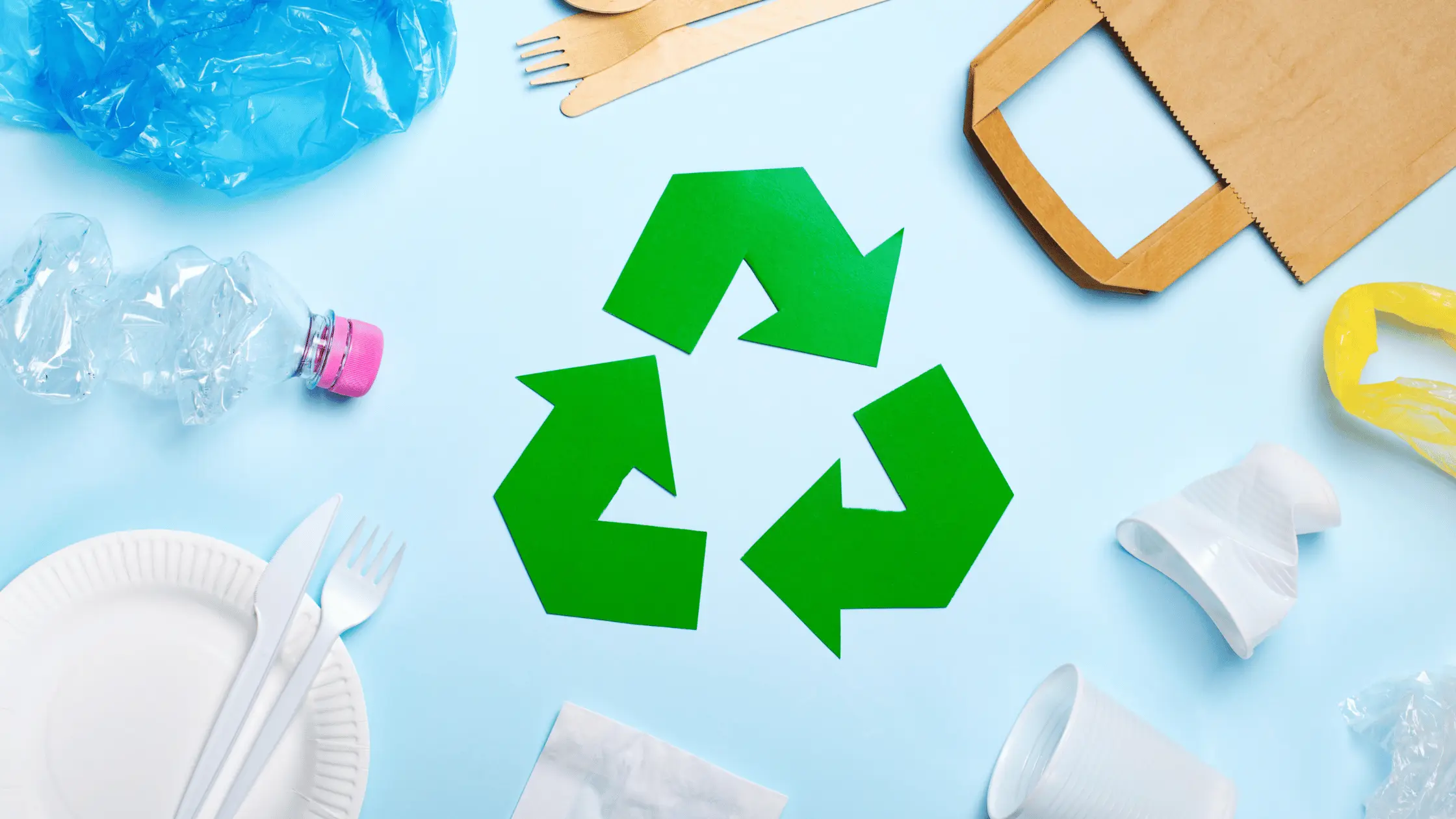We’ve all thrown a disposable coffee cup in the trash or a food takeout container into the bin at least once. You may think you’re doing your part to recycle, but your positive attitude towards recycling isn’t helping. Depending on your location, there are specific types of Non Recyclable items, such as paper, glass, and plastic. Please check with your local city service provider for more information. However, here’s a general list of items that aren’t recyclable, as well as tips on how to recycle or reuse them.
List of 20 Non Recyclable Items
1. Aerosol Cans

Aerosols are made of metal which comes in the list of the non recyclable items. However, since spray cans are also loaded with propellants and chemical compounds, most municipal facilities classify them as hazardous waste.
2. Batteries

These types of waste are usually treated separately from general household waste and curbside waste recycling and are non recyclable items.
3. Ceramics and Pottery

Coffee mugs are another example of items that can be used in the garden and they are placed as a non recyclable object.
4. Brightly Dyed Paper

Like the red sock in your laundry, strong paper dyes work the same way.
6. Diapers

The paper and plastic used in disposable diapers cannot be recycled for profit.
7. Hazardous Waste

Household chemicals, motor oil and antifreeze, as well as other liquid coolants are all recyclable. Motor oil is also recyclable but is typically treated separately from other household items. Learn how your community treats these hazardous materials before you require them.
8. Household Glass

Glass, glassware, and light bulbs Glass, glassware and light bulbs are not practical to recycle. Most bottles and jars are good to go. CFLs CFLs are easy to recycle, but they contain small amounts of mercury and should not be considered ordinary household bulbs.
9. Medical Waste

Biohazard items such as syringes, tubing and scalpels should be disposed of as such.
10. Napkins and Paper Towels

These items are non recyclable due to what they can absorb. They are being considered for composting.
11. Paper Towels

Tissue and napkins also come under the “too much residue” category and consider as non recyclable items.
12. Pizza Boxes

Too much fat. Some compost lovers avoid using pizza box cardboard in their compost piles, while others report no issues. It’s either that or the garbage.
13. Plastic Bags and Plastic Wrap

Clean and reuse the bags if possible. You can return them (and many other plastic film items) to your local store or Recycle Bank.
14. Shredded Paper

While most plain paper is recyclable, it is difficult for recycling centers to identify the type of paper that is shredded. However, shredded, plain paper can be composted or mulched.
15. Takeout Containers

Plastic containers that contain food are non recyclable unless they’ve been rinsed. Oily residue on the containers means they can’t be recycled.
16. Tires

In addition, many states mandate that tires be disposed of separately (and charge a fee at the time of sale)
17. Wet Papers

Recyclers generally ignore paper products that have been in contact with water. The fibers can deteriorate, and there are potential risks of contamination.
18. Wire Hangers

Most drop-off centers don’t accept wire for recycling, but most dry cleaners will happily hand it over to you.
19. Yogurt Cups

Plastics number three through seven are not recyclable at many centers. These plastics are usually food containers like yogurt cups or butter tubs or oil bottles.
Your municipal recycling system has the final say on what goes into your bin. Some communities limit more than what we’ve listed, while others have specific programs for dealing with hazardous materials. Most municipal systems will provide written guidance on how to recycle what your local system doesn’t accept. Check out the Earth911 website to see what’s available in your community.
20. Plastic Straw

When disposing of plastic bottles that are not recyclable, dispose of them separately. It is important to note that smaller bottle caps can be a choking hazard.
